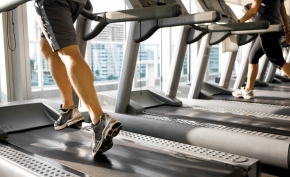Say Goodbye to Arthritis

Here’s how you can efficiently treat arthritis with innovative technologies & solutions
Arthritis is a disabling condition in which the joint surfaces get inflamed, ultimately leading to degeneration and loss of cartilage space. There are various kinds of arthritis, most notably osteoarthritis and rheumatoid arthritis. Currently, there are over 180 million cases of arthritis in India and if this trend continues, the country will be the global capital of arthritis by 2025.
In the next decade or so, knee arthritis is expected to become the fourth most common cause of physical disability in India. Joint replacement surgeries, in particular knee and hip replacement, also have been on the rise, keeping pace with the prevalence of arthritis and is expected to double in the coming decade.
Researchers and industry players are rigorously working towards efficient and effective treatment methods to treat arthritis and its related primary and revision joint replacement surgeries. With technology coming to the forefront, many innovative treatments which are simpler, quicker, and efficient are being used to treat patients.
Fast-track programme: In a fast-track programme, the surgery is performed using a minimally-invasive approach with minimal or no cutting of the muscles. The incision is very small (¾ inches) and there are no stitches. Both knees can be operated simultaneously and operating time is kept to a minimum. Blood loss is negligible following surgery and blood transfusion is seldom required. The patient is made to stand and walk within 2-3 hours of surgery and is pain-free during their hospital stay which is also shortened to two days.
Thereafter, a home-based exercise programme is initiated which results in the rapid recovery of the patient. The patient can expect to walk outdoors without support by 3-4 weeks, drive a car or a bike by six weeks and get back to work in no time. Since the latest implants available are of high flexion design, the knee can bend to 135-140 degrees. That means patients desirous of sitting cross-legged can do so without any difficulty.
Gold knee replacement: A traditional knee or hip implant is made of a cobalt-chromium alloy and can last for 15-20 years on an average. But, with the introduction of opulent (gold knee replacement), it can last for 25-30 years. This is a boon for younger patients with knee arthritis, as revision surgeries can be averted to a great deal. Similarly, in a total hip replacement, ceramic implants are offered to younger patients which can last as long as a gold knee implant. Additionally, computer navigated surgeries increase precision and aims for 100 per cent accuracy in placing the knee implants. This further enhances the longevity of the implant.
Partial knee replacement: Partial knee replacement is essential for patients with single compartment arthritis. Being a very small surgery, recovery is quick. Hospital stay is only for a day and by 3-4 weeks, patients are back to their normal self.
With increasing joint replacement surgeries over the last two decades, the need for revision surgeries has also risen. With the latest addition of revision implants such as the Trabecular metal and cones, the success rate has improved tremendously and patients can expect to get back to their normal selves soon. We have doctors around us who are skilled enough to successfully perform these advanced surgeries and I urge everyone not to ignore any kind of joint pains. Get checked for the pain as soon as possible as delaying it might lead to serious outcomes. Likewise, don’t forget to wear a mask, use sanitiser, and maintain social distancing.














